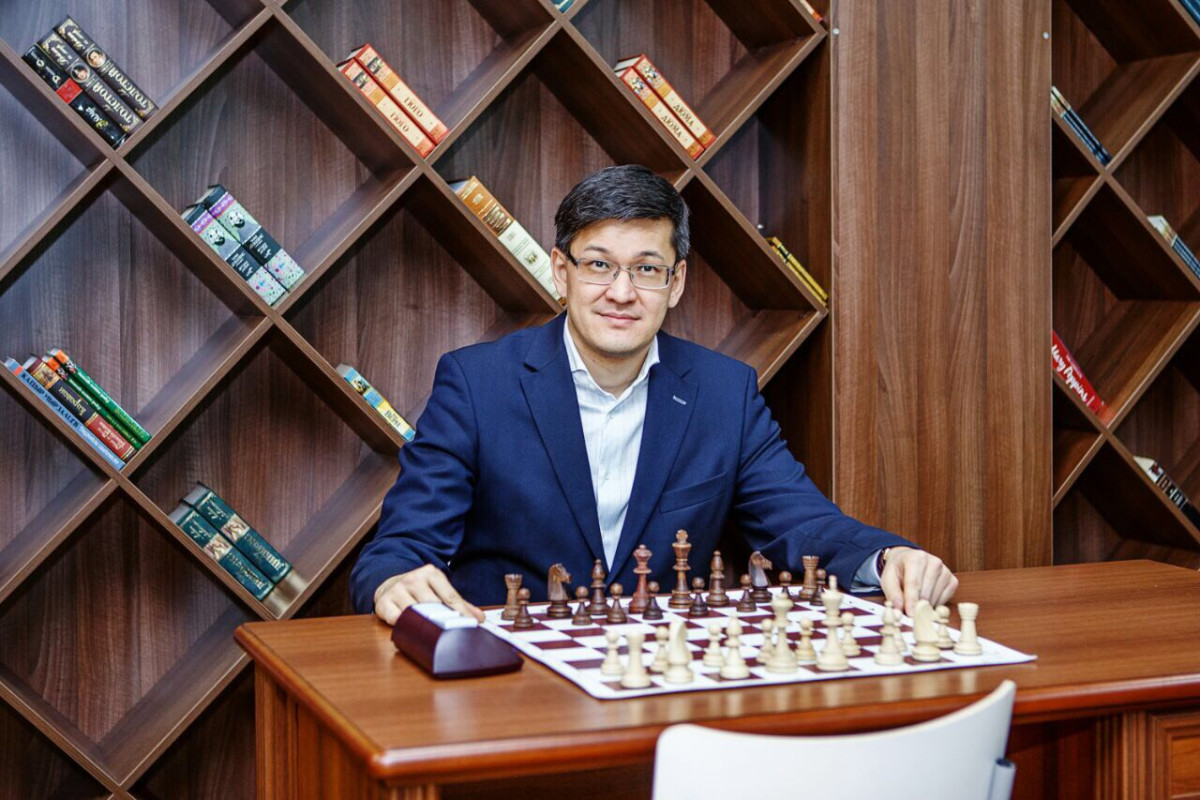
Darmen Sadvakasov: the potential of chess must be judged by concrete results
A well-known Kazakh grandmaster, the world champion in different age categories and the holder of many titles at international level now heads the “Darmen Sadvakasov Chess Academy”.
In an exclusive interview to el.kz, the most titled chess player of Kazakhstan, Darmen Sadvakasov shared his vision of the level of development of chess in our country, and also talked about what chess pieces he prefers to finish his games.
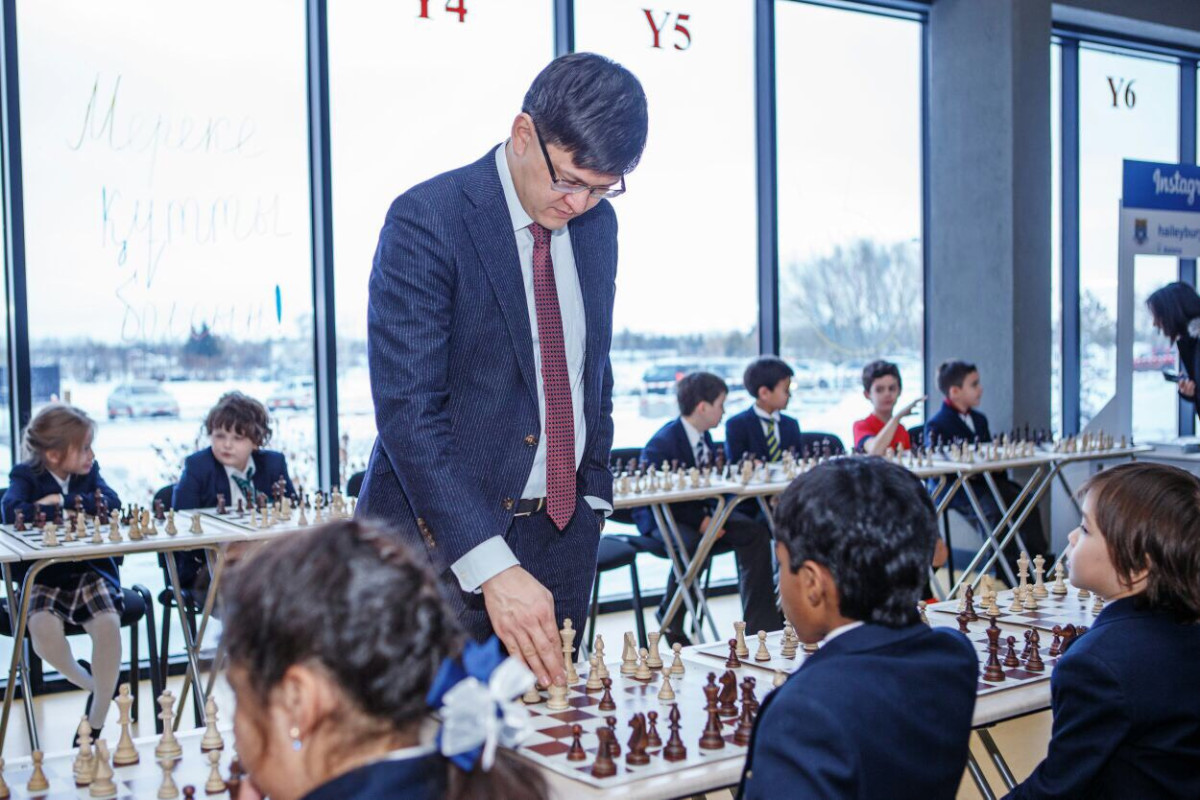
- Darmen, can you tell us a little about how things are going in your school? What are the achievements of your students?
- School started its work in September last year, as a result of the meeting with Kulyash Shamshidinova, the Chairman of the Board of “Nazarbayev Intellectual Schools”. This idea was born in summer during the summer chess camp on the basis of the “NIS”. The school operates both on a fee-paying and non-fee-paying basis. On a non-fee-paying basis, 384 children are studying now, children of 1-2 classes of the Astana international school. On a fee-paying basis, you can choose a more intensive program with more frequency of training. As trainers we have grandmasters and masters of sports of international class. They work with a unique method developed by Yevgeniy Vladimirov. This specialist has a great coaching achievements, he was a Gary Kasparov’s coach and a number of other leading players in the world. Furthermore, at various times, he led three national teams – the national team of Kazakhstan, Spain and India. In India he worked a lot with young people, educated Pentala Hari Krishna, now included in top-20 players in the world. He was a mentor of other world famous chess players, among whom was the boy who became a grandmaster at the age of 12. Overall, we started working very recently, and some of our children have already started to get titles. Now some children show very good potential, it needs to be disclosed, on what we are currently working. I believe that the result will be expressed in the victories at the world Championships.
- At that time you personally taught Bibisara Asaubayeva...
- Bibisara Asaubaeva came to us when I conducted a slightly different project called “the Grandmaster chess school”. Bibisara was 6 years old, when I personally tested her and found that the girl has a remarkable talent. I told her mother that she has a very unique ability of concentration of attention. Later I also tried to support her as I became the Vice-President of the Kazakhstan Chess Federation. She had a very quick progress in chess, winning the world Championships among children and students.
- Are there any other talented children in your school whose names you can say now?
- Let us not get too ahead of ourselves; in chess success is evaluated objectively, by already won victories. We realize the individual students’ potential; coaches train them. But about the students’ level can tell better only their achievements, which can give the most objective view, but not coaches, who are probably unwittingly subjective. For example, the first place at the world championship among kids can be really an indisputable indicator of talent, which we could all be proud of. In recent years, our children showed good progress, lots of medals were won at the world championships among children and students. But, unfortunately, the recent results are not so encouraging. For example, from the last World Cup, our students brought only one medal, alas, bronze... In my opinion, there are some failures in this area. I am not talking specifically about the Academy, I mean the Republic as a whole. For example, earlier we brought 5 - 7 medals, and sometimes 10. It was an ordinary case for us then, therefore there are unresolved issues. That probably needs to be rebuilt. I hope so much that the establishment of the Academy will support the overall development of chess in Kazakhstan.
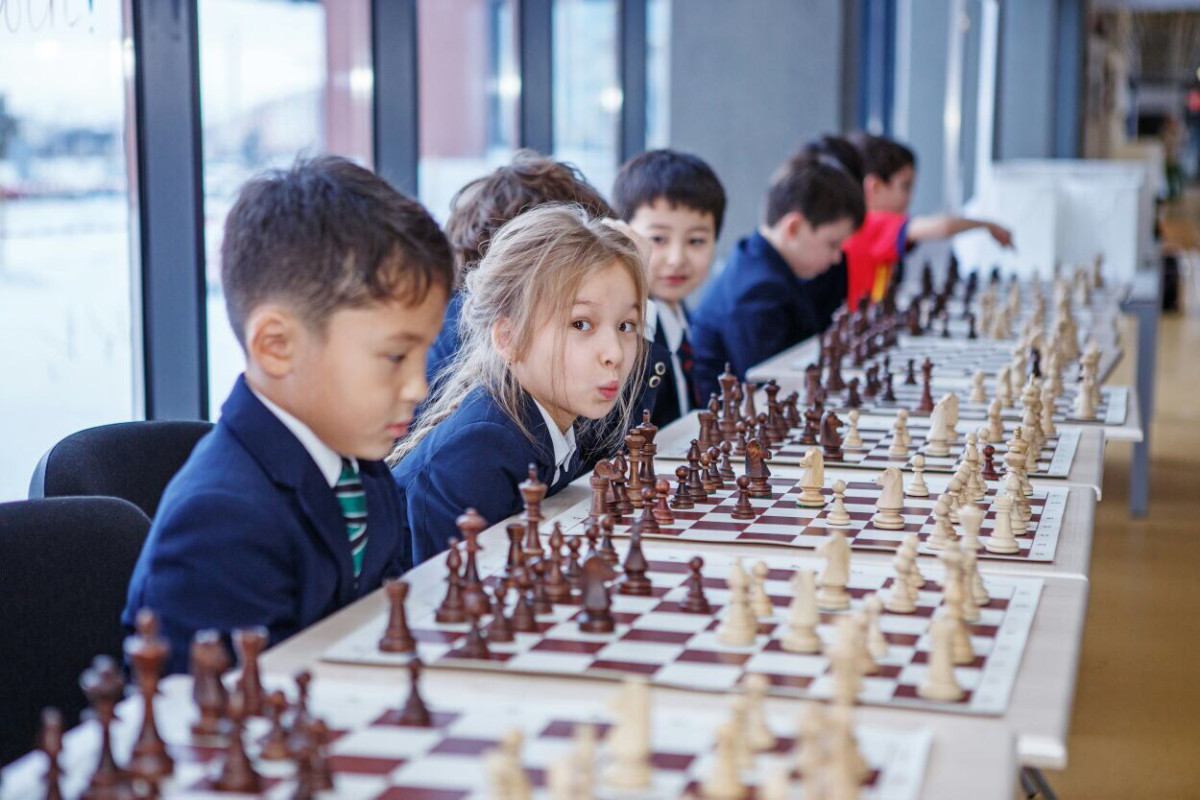
- It is obvious that in Astana the training is all right. How are things going in the regions?
- The regions, where the development of chess traditionally is well developed, are Pavlodar, South Kazakhstan, West Kazakhstan; good results are shown in Kostanay and Karaganda regions.
- In recent years Kazakhstani chess has taken a big step forward, this can be judged by the appearance of a large number of winners and prize winners of international tournaments and world championships, and as a consequence names in the world. In your opinion, what was the cause of this?
- In chess there are a few key segments: women’s chess, men’s and junior’s chess. Let me talk about the last one. Here, indeed, certain success has been achieved, especially, among girls. They won so many world championships among children and students. They are, of course, the current world champion at the age of 20 Dinara Sadvakasova and Zhansaya Abdumalik, who was also the world champion in the individual age groups and now she participates in women’s chess, despite the fact of her age she could still be in the junior categories. There are a number of girls who have succeeded. Accordingly, these young girls formed the basis of the women’s team, which, in turn, have also shown consistently high results.
In 2014, at the Olympics women’s team took the 6th place, it is very good, because the result was shown among more than 100 teams. At the World Championships in 2013, our team also took the 6th-7th place. However, in 2016, it was a complete failure, when our women’s team at the world chess Olympiad took the 37th place. It was expected that in this tournament our team would be competing for places among the three winners. I think that the Kazakhstan Chess Federation made a wrong decision on selection of team members, as the result, the three participants of the previous part who took the 6th place, and were one of the youngest teams were not sent to the most important tournament. Then our team was strongly discouraged by small internal scandals, there were restrictions and requirements necessary to participate in the championship of Kazakhstan to those who, for objective reasons (for example, maternity leave) could not do it. Dinara Sadvakasov was not taken, who by the time is the world champion among juniors.
The extremely distressing thing was moving of Bibisara Asaubayeva, now serving under the Russian flag. We invested a lot in this girl since a very young age; she had a good scholarship, full support for competitions and trips. And the fact that in the Federation there were not people ready to support constructively the dialogue has influenced it. The application to change the Federation was in KCF for 3 months. No one was able or did not want to solve issues that were raised. We lost one of the most talented girls. For many years we had supported her, but she left us. Such nuances erase the positive achievements, such as, for example, a blitz tournament in Almaty in 2016 with the participation of many leading players in the world. For me, as for a man who had worked in the Federation for 4 years, created it all piece by piece, I have a sense of frustration.
- Is there any resentment on Bibisara’s parents that they did not go through with KCF and decided to choose a little different way?
- I am not already a member of KCF now; we just built this foundation from 2010 to 2014 that was supposed to work. But this is only the second segment, which we have designated as women’s chess. Let us talk now about the third, that is to say, the men’s chess. They are much more competitive than women. For example, I have not played long enough since 2010; have not practiced actively at all since 2008. And despite this, in 2017 I am still the number one of the rating of Kazakhstan. Saying this, I do not want to boast – it says that now in men’s chess there are not serious players. In general, we have Rinat Zhumabayev, who has recently shown good results, achieving victories in individual competitions, as well as international. But judging objectively, it is difficult to classify him as young players, because he is already 27 years old. He has already become a chess grandmaster with his own style. He shows stable results, but our men’s chess needs a new impetus. Moreover, the impetus must be of the highest level, we need players who can get into the world top hundred, for example. And even in the top twenty, or even ten. We have to work with these talents; we have one boy who became the world champion at the age of 17 last year, Zhanat Sain. Unfortunately, no one works with him and there is no system support. I talked to his parents; the boy does not have even the scholarship from KCF. They live in West Kazakhstan, and have very good support at the regional level. But becoming a world champion up to the age of 17, the boy goes in the professional age where he needs support at a different level to progress and get into the team.
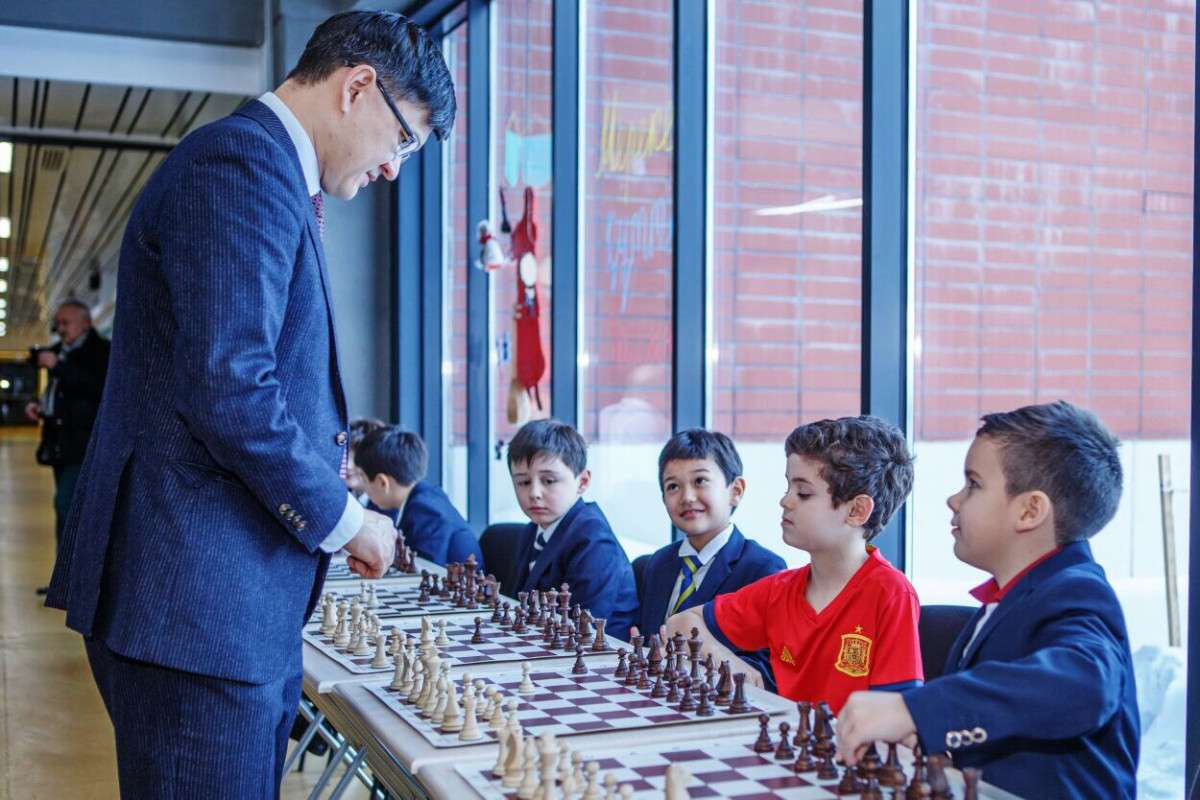
- What solutions do you see to change the situation? Is additional funding of KCF needed?
- Not exactly. As far as I know, there is a certain amount of money in KCF. At least, there was funding to organize the Cup of Eurasia, everything was at the highest level; players lived in the Ritz Carlton hotel. That is, in this respect, everything is fine. It just needed to choose more correctly exactly where to invest available funds for the effective development of Kazakhstani chess in general. In addition, the right choice is also necessary in professionals working with our players.
- Darmen, you have a lot of regalia and awards. However, even quite distant from the world of chess people know your name not because of them, but thanks to your victory over the legendary Russian grandmaster Anatoly Karpov. Let us remember that match, and actually the time.
- Of course, at first I was known as a budding talent. I became the champion of Asia of up to the age of 20, then the world champion at the same age, then victories in specific matches. First I won Igor Korchnoi, and then Anatoly Karpov. By the way, there were two draws with Gary Kasparov. In total I won about 12 international tournaments.
- As far as we know, you were a scholar of “Bolashak”. Where and what did you study?
- In 2007 I decided to go to the USA on the program “Bolashak”, where I studied at the University of Carnegie-Mellon, which is one of the leading educational institutions in IT technology and engineering. There I studied economics, which is also in the top ten in the rating among universities. That was a very good opportunity for me in terms of expanding horizons. I am very grateful that here in Kazakhstan we have a program “Bolashak”. This is a great opportunity for young people to obtain education in the best Universities of the world due to state support. During my study in the USA, I was playing in tournaments, where I won 6 tournaments, or shared the 1st place with the opponent. Having returned to Kazakhstan, I started to work in the Presidential Administration of the Republic of Kazakhstan, in the analytical department. Then from a player I gradually transformed into a chess functionary, since 2010 working in the Kazakhstan Chess Federation.
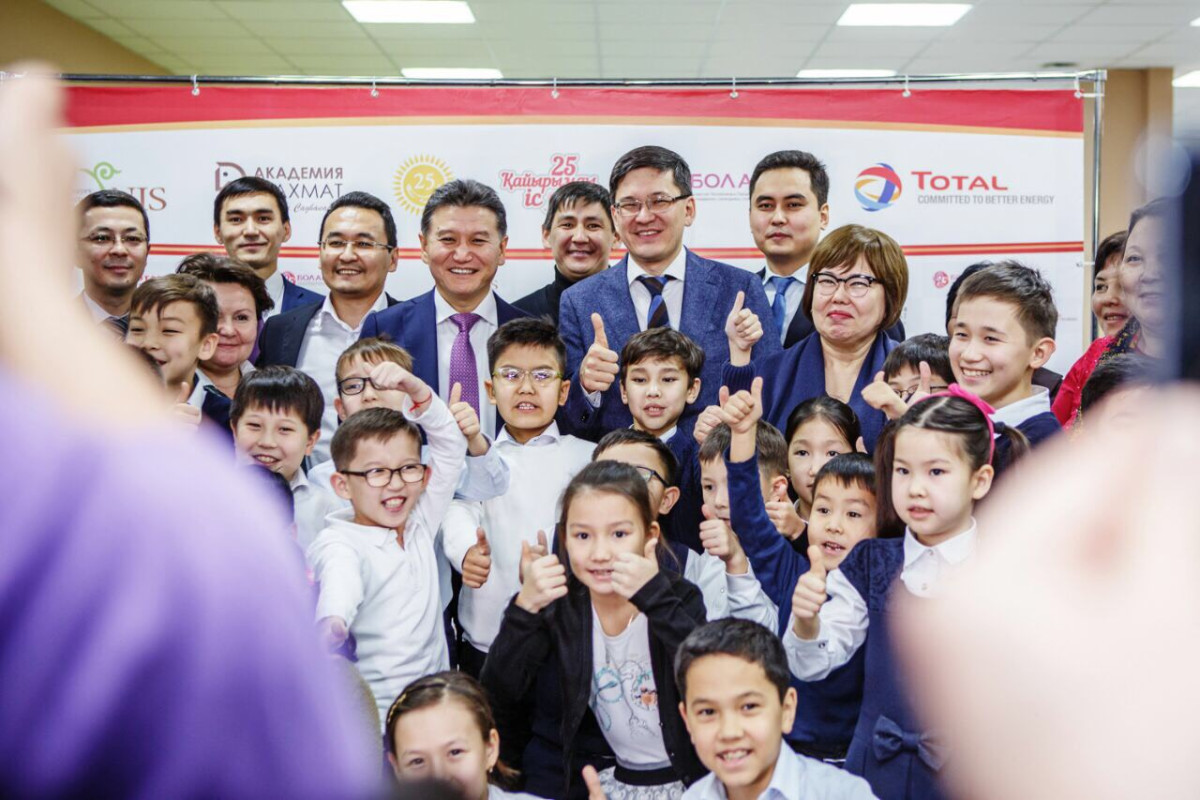
- What pieces do you love playing with the most?
- With rooks. I loved to finish the game with these pieces. There is a whole segment called “rook ending”, which is very common in chess. This segment I could do pretty well in the game to win as well as in playing for a draw.
- Do you associate yourself in life with any of the pieces?
- To associate people with the pieces is difficult, due to the fact that people are much more complicated. But you can associate chess with different life situations. And Gary Kasparov even has a book “Chess as a model of life”. He reads lectures at leading business schools in the world on the topic of the category of “How chess can help top managers to make decisions”.
- Thank you for the interview!

